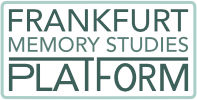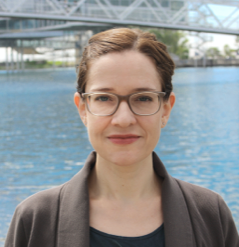Jenny Wüstenberg (Nottingham Trent University)
January 23, 2024
4pm, Room 411
Goethe University Frankfurt, Campus Westend
Download the poster here
Some our most vexing contemporary challenges can be described in terms of slow memory: when we are not propelled into decisive action by memories of extreme violence, sudden catastrophe, or unexpected triumph, when what is changing happens in a creeping, diffuse, or even invisible manner, we find it extraordinarily difficult to remember, recognize and prioritize it for policy action. Biodiversity loss and what scientists call “the sixth extinction” are a prime example of a slow development that we are struggling to address, though the evidence about its future impact is unequivocal. We are hampered, in other words, both by the “slowness” of change and by the accelerated nature of the political, economic and cultural relationships that we need to activate in order to respond. In this talk, I will outline the concept of slow memory and its operation in contemporary memorial politics, using the Mass Extinction Memorial Observatory (MEMO) Project on the Isle of Portland (UK) as a case study. I will discuss the “memory culture of extinction”, which is institutionalized in museums of natural history and elsewhere, as the backdrop against which the effort to build a monument to extinct species is taking place. I will then focus in on the politics surrounding MEMO, which are caught up between arguments about the global relevance of biodiversity and the economic prerogatives of Portland as a peripheral community in an otherwise wealthy region. Portland, with its traditional stone industry, serves as a direct link between our modern cultural practice of monumentalizing that which we deem to be important, the discovery of fossils that lead to the scientific concept of extinction, and the past-life-turned-stone that connects us to deep time. And it exemplifies the kinds of power struggles that happen when memory activists endeavour to make a slow-moving process gain traction in accelerating time.
Jenny Wüstenberg is Professor of History & Memory Studies at Nottingham Trent University and the co-lead of AIMS@NTU (Advancing Interdisciplinary Memory Studies) there. She is the co-founder and past Co-President of the Memory Studies Association, as well as Chair of the COST Action on “Slow Memory: Transformative Practices in Times of Uneven and Accelerating Change” (2021-25). She is the author of Civil Society and Memory in Postwar Germany (Cambridge UP 2017, in German LIT Verlag/Bundeszentrale für politische Bildung 2020) and the forthcoming Slow Memory: Remembering Gradual Change in an Accelerating World (Oxford UP). She is co-editor, most recently, of Agency in Transnational Memory Politics (with Aline Sierp, Berghahn 2020), the Routledge Handbook of Memory Activism (with Yifat Gutman, 2023), De-Commemoration: Removing Statues and Renaming Places (with Sarah Gensburger, in English with Berghahn and in French with Fayard in 2023), and a special issue of Memory Studies (December 2023, with Jeffrey Olick and Aline Sierp). Her research interests concern the contentious politics of memory, memory and democracy, slow-moving change such as biodiversity loss, and the memory of family separation policies.



